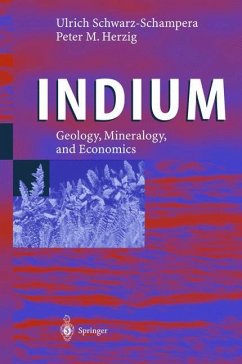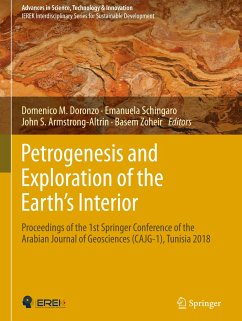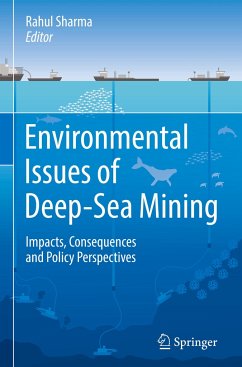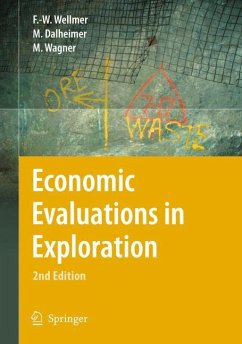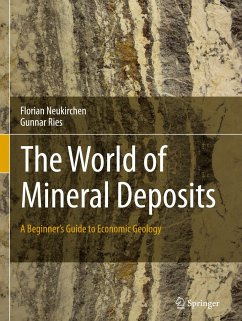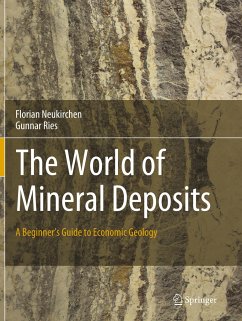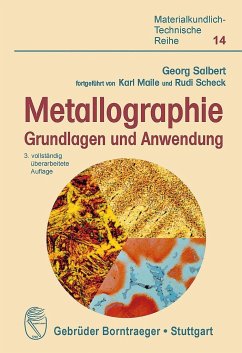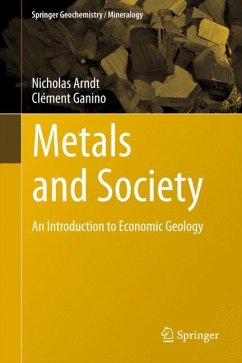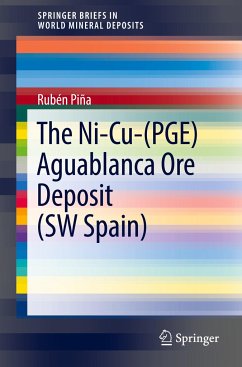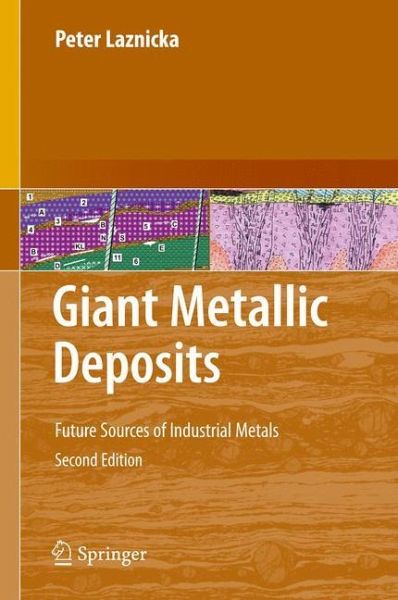
Giant Metallic Deposits
Future Sources of Industrial Metals

PAYBACK Punkte
76 °P sammeln!
Metals in the earth's crust are very unevenly distributed and, traditionally, a small number of ore deposits, districts or countries have dominated the world supply and have influenced commodity prices. The importance of exceptionally large, or rich, deposits has greatly increased in the age of globalization when a small number of international corporations dominate the metals market, based on few very large ore deposits, practically anywhere in the world. Search for giant orebodies thus drives the exploration industry: not only the in-house teams of large internationals, but also hundreds of ...
Metals in the earth's crust are very unevenly distributed and, traditionally, a small number of ore deposits, districts or countries have dominated the world supply and have influenced commodity prices. The importance of exceptionally large, or rich, deposits has greatly increased in the age of globalization when a small number of international corporations dominate the metals market, based on few very large ore deposits, practically anywhere in the world. Search for giant orebodies thus drives the exploration industry: not only the in-house teams of large internationals, but also hundreds of junior companies hoping to sell their significant discoveries to the "big boys".Geological characteristics of giant metallic deposits and their setting and the politico-economic constraints of access to and exploitation in prospective areas have been a "hot topic" in the past fifteen years, but the knowledge generated and published has been one-sided, scattered and fragmented. This is the first comprehensive book on the subject that provides body of solid facts rather than rapidly changing theories, written by author of the Empirical Metallogeny book series and founder of the Data Metallogenica visual knowledge system on mineral deposits of the world, who has had an almost 40 years long international academic and industrial experience. The book will provide abundant material for comparative research in metallogeny, practical information for the explorationists as to where to look for the "elephants", and some inspiration for commodity investors.



